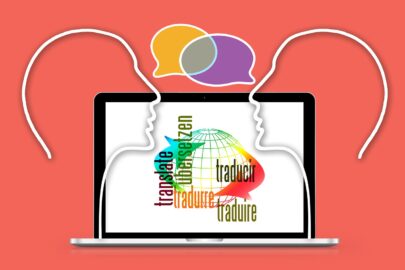As the world grows with communication and connectivity, translation services ensure enterprises get to expand on outreach with their messages. Today’s technological advances bring businesses and individuals to consider both human and machine translations. But where does each of the options stand in terms of chief factors for availing translation services successfully? Following is a guide to help you make an informed decision on the matter.
1. Precision and Quality
Human Translation Services: Humans will always take the fore when it comes to cultural appropriateness. It comes from the understanding of language nuances such as cultural references, idioms, contextual meanings and so on. These are especially essential for medical reports, legal contracts, marketing materials and other complex documents, where context and precision are of utmost vitality.
AI Translation Services: AI translation has received immense advancement recently, with tools like Google Translate and DeepL being more sophisticated than ever. While AI can provide reasonable accuracy for routine translations, it is not always up to the mark regarding specialized jargons, idiomatic expressions and cultural nuances. The quality may fluctuate as per text complexity and the involved language pair.
2. Speed and Efficiency
Human Translation Services: Human translation requires time for reading, understanding and translating text, thusly making them slower than AI. Having said that, experienced human translators can produce qualitative translations within a reasonable timeframe. Large projects can have teams of expert translators employed to see through the entire process.
AI Translation Services: A most significant plus point of AI translation services is speed. When time is of essence, AI can translate large volumes of text almost spontaneously. However, this does not ensure quality and precision, most specifically for nuanced or complex texts.
3. The Costing
Human Translation Services: Human translation is usually more expensive than AI because of the expertise and time invested by the professional translators. Rates may widely vary based on text complexity, language pair and the necessary turnaround time. If higher cost is considered a minus, it eventually pays off in regard to precision and quality.
AI Translation Services: AI translation is generally less expensive. There are many AI translation tools available online for free or at a low subscription cost, leading to a greater outreach. Enterprises and individuals with a limited budget can go for AI translation, particularly for less critical texts where absolute accuracy is not essential.
4. Security and Confidentiality
Human Translation Services: Professional translators often have to maintain confidentiality agreements and strict data security protocols. Therefore, human translation services are a safe choice when it comes to confidential or sensitive documents. Clients can rely on the human translators knowing their information will be handled with care and discretion.
AI Translation Services: AI translation services, especially those available for free online are risky for confidentiality and data security. The tools may store and analyze the text submitted for translation, which is required for improving the AI algorithms. This naturally opens up for privacy concerns for the information shared. That’s why it is crucial for using AI translation services that guarantee data security.
5. Flexibility and Customization
Human Translation Services: Human translators provide a high degree of flexibility and customization. We can adapt to specific client needs, use preferred terminology, and follow style guides to assert the translation be aligned with the desired tone or purpose. This level of personalization is particularly valuable for branding, marketing and other areas where consistency and voice are important.
AI Translation Services: As compared to human counterparts, AI translation tools are less customizable and flexible. Several AI tools do offer limited customization options like adding specialized glossaries, but it is not enough to be fully adaptable to nuanced client requirements. This limitation can affect the entirety of required translation in terms of appropriateness.
Conclusion
Thus we have it, as both human and AI translation services find their places in today’s world. Human translators are ahead regarding precision, quality, customization and confidentiality, covering critical and complex documents ideally. On the other hand, AI translations are all about speed and cost-effectiveness as they can take care of quick and routine translations. Considering these key differences will help you choose wisely for your specific needs regarding translation services.
-x-
#reading, #writingcommunity, #milyin, #writer, #today, #new, #translationservices, #aitranslation

Comments